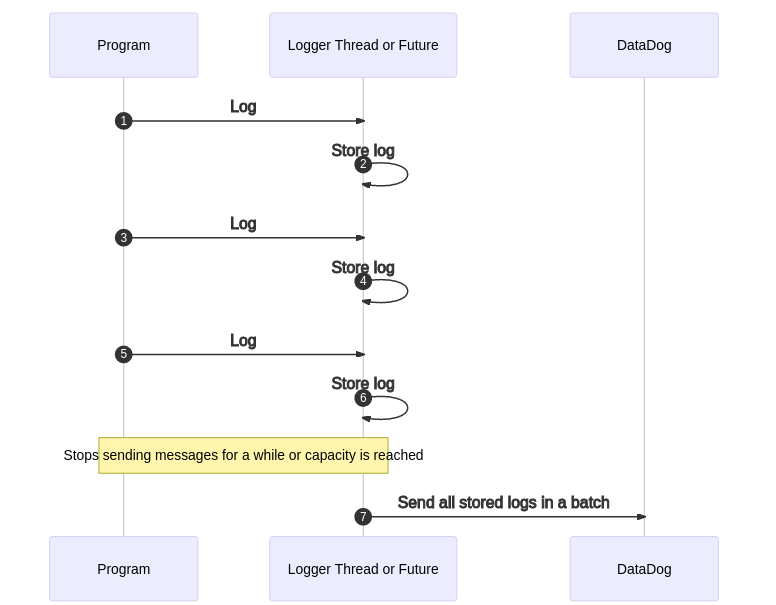3 unstable releases
| 0.2.1 | Feb 21, 2021 |
|---|---|
| 0.2.0 | Feb 21, 2021 |
| 0.1.0 | Sep 4, 2020 |
#34 in #datadog
1,373 downloads per month
31KB
532 lines
Datadog Logs
What
datadog-logs is a minimalistic crate for logging to DataDog. It does it directly via HTTP(S) using DataDog's public API.
How
Logger consists of two parts - logging facade that sends messages to dedicated thread or task that batches messages to send to DataDog as presented on sequence diagram below.

Thanks to such a workflow logging should not affect throughput of your application, nor force you to handle errors arising from HTTP.
Why
Author found no existing library that could be used for this purpose.
Feature flags
log-integration- enables integration withlogcrate (enabled by default)
lib.rs:
About
datadog-logs is a DataDog logs API client with log integration.
Provides support for HTTP DataDog logs ingestion API. Supports blocking and nonblocking HTTP(S) clients activated by feature flags.
Logger is easily configurable with extensive DataDogConfig that can be deserialized directly from file thanks to serde.
It offloads the job of sending logs to DataDog to a separate thread (blocking logger) or task (nonblocking logger).
Using with log crate
use datadog_logs::{config::DataDogConfig, logger::DataDogLogger, client::HttpDataDogClient};
use log::*;
let config = DataDogConfig::default();
let client = HttpDataDogClient::new(&config).unwrap();
// there is also a blocking logger available that does not require runtime
let future = DataDogLogger::set_nonblocking_logger(client, config, LevelFilter::Error).unwrap();
// there is a convinence function available to spawn future to tokio
// however, this design makes it compatible with every runtime without effort
tokio::spawn(future);
// now you can log
error!("An error occured");
warn!("A warning");
Dependencies
~3–15MB
~205K SLoC